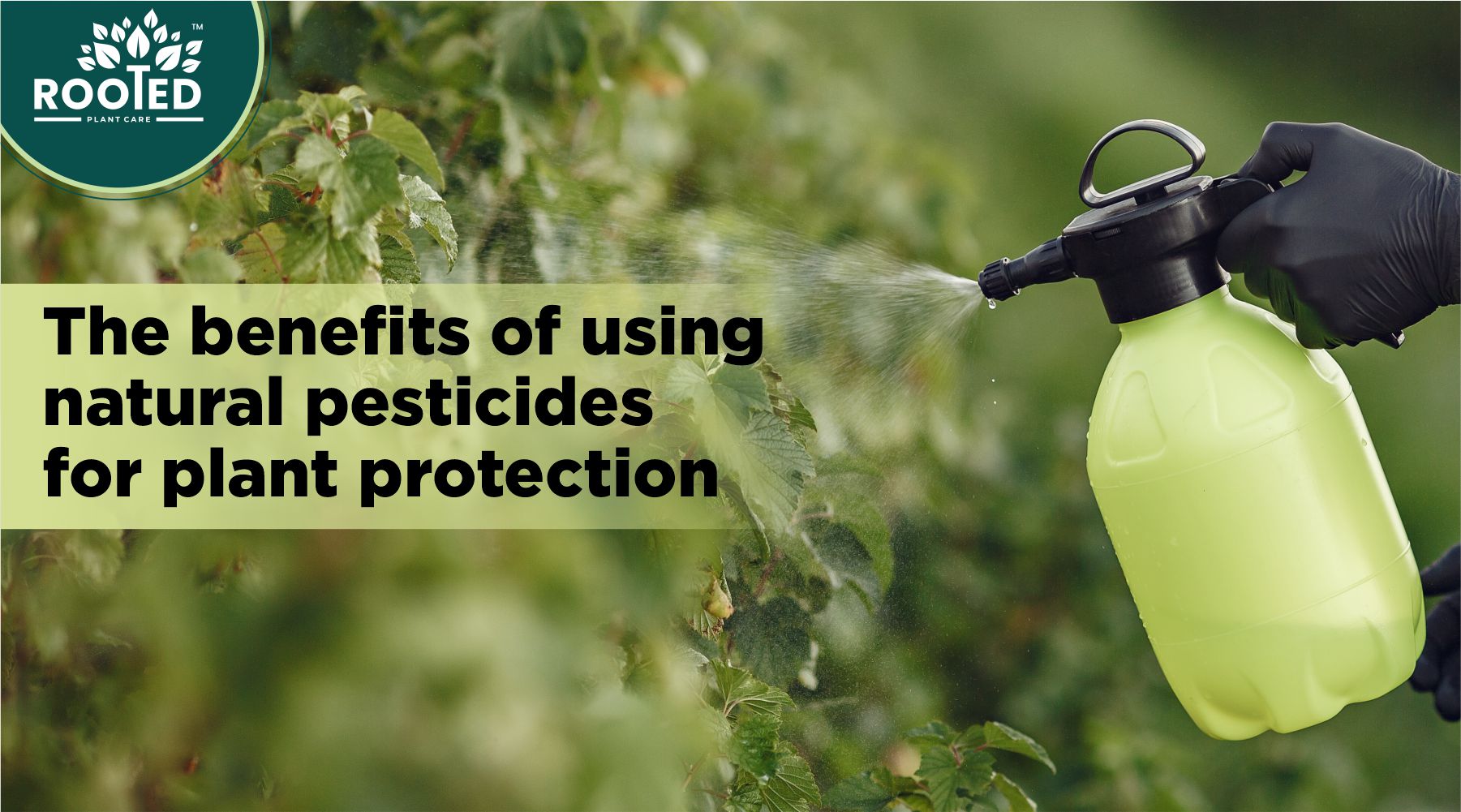When it comes to protecting your plants from pests and diseases, many people turn to chemical pesticides. However, these products can be harmful to the environment and human health. Fortunately, there are natural alternatives that can be just as effective without the negative side effects. Neem Oil is one of the best natural pesticides that offer excellent protection making it a safe and efficient alternative to toxic pesticides for pest control in gardens. In this guide, we will explore the top benefits of using natural pesticides for plant protection.
Read more about Neem Oil for Plants: A Natural Pest Control Solution.
THE BENEFITS OF ROOTED NEEM OIL NATURAL PESTICIDE
-
Safe for the environment and beneficial insects.
One of the top benefits of using natural pesticides for plant protection is that they are safe for the environment and beneficial insects. Chemical pesticides can harm not only the targeted pests but also other insects, including bees and butterflies, which are essential for pollination. Natural pesticides are made from natural ingredients and do not harm beneficial insects or the environment. It means you can protect your plants without harming the ecosystem around them.
-
Non-toxic to humans and pets.
Another major benefit of using natural pesticides for plant protection is that they are non-toxic to humans and pets. Chemical pesticides can be harmful if ingested or inhaled, and can even cause skin irritation or other health problems. Natural pesticides, on the other hand, are made from ingredients that are safe for humans and pets to be around. It means that you can protect your plants without putting yourself or your loved ones at risk.
-
Effective against pests and diseases.
Natural pesticides are more effective than chemical pesticides for controlling pests and diseases. They contain ingredients specifically designed to target and eliminate harmful insects and fungi, while also promoting the growth and health of your plants. Also, natural pesticides are less likely to create resistance in pests, which means they will continue to be effective over time. By using natural alternatives, you can protect your plants from damage without harming the environment or risking your health.
Read more about Common Plant Pests and Natural Control Methods.
-
Cost-effective in the long run.
While natural pesticides may have a higher upfront cost compared to chemical pesticides, they are more cost-effective in the long run. Chemical pesticides can harm the soil and surrounding environment, leading to costly damage and cleanup. Additionally, the overuse of chemical pesticides can lead to pest resistance, requiring even more expensive and harmful chemicals. Natural pesticides promote healthy soil and plant growth, reducing the need for future treatments and ultimately saving money.
-
Promotes healthy plant growth.
Natural pesticides not only protect your plants from pests and diseases, but they also promote healthy plant growth. Chemical pesticides can harm beneficial insects and microorganisms in the soil, disrupting the natural ecosystem and leading to poor plant health. Natural pesticides, on the other hand, work with the natural environment to promote healthy soil and plant growth. They can even improve the taste and quality of your fruits and vegetables. By using natural pesticides, you can ensure that your plants are not only protected but also thriving.
Expert Recommendations for Natural Pesticides
An organic and natural treatment that successfully keeps pests away from your plants and gardens is Rooted Neem Oil Spray or Concentrate, made with the extracted Neem tree's seeds. It offers long-lasting defence without endangering beneficial organisms. This non-toxic treatment is more successful than chemical pesticides at controlling a variety of pests, including aphids, mites, thrips, caterpillars, and whiteflies.
Where Can You Get Rooted Neem Oil Spray?
- Zyax’s Rooted Neem Oil Spray & Concentrate are available on our global website.
- Available on Amazon as well.

